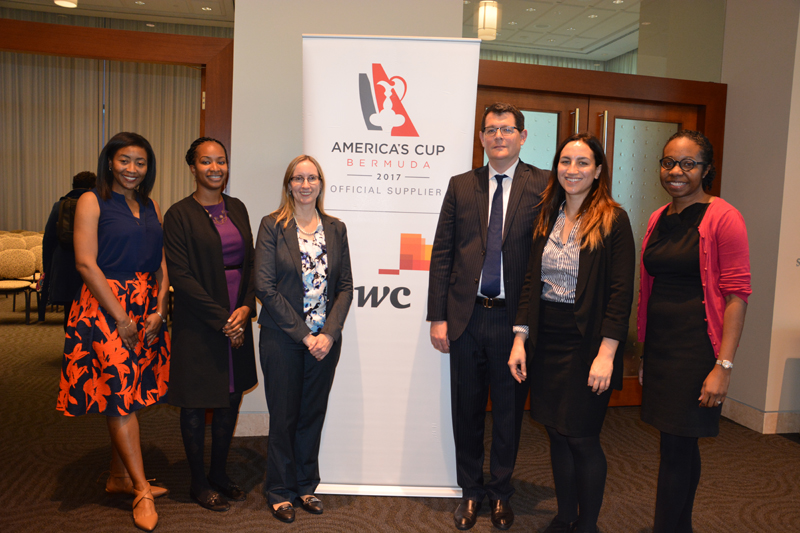PWC Report On Winning Fight For Female Talent
To mark International Women’s Day [IWD], PwC released a new report – Winning the fight for female talent: How to gain the diversity edge through inclusive recruitment – which looks at what employers can do to attract and retain female talent and underscores the importance of embedding diversity and inclusion into the employer brand.
PwC surveyed 4,792 professionals [3,934 women, 845 men] with recent experience of the jobs market from 70 countries to find out about their career aspirations and employer diversity experiences.
In parallel, PwC surveyed 328 executives with responsibility for diversity or recruitment in their respective organisations to explore current diversity trends and practices.
Female and male respondents ranked opportunities for career progression among the top three employer traits, along with competitive wages and flexible work arrangements.
Female career starters and female millennials identified this as the most attractive employer trait, as did women overall in a number of countries. The report also found that women who had recently changed employers said a lack of opportunities for career progression was the top reason they left their former employer [35%].
The report was presented at a panel discussion Wednesday night by PwC Bermuda and the Women’s Legal Network, entitled, ‘The Diversity Journey: Taking Action, Creating Impact, Achieving Results’. Over 160 business people attended the event at O’Hara House.
PwC Bermuda and the Women’s Legal Network host a panel discussion Wednesday night entitled, ‘The Diversity Journey: Taking Action, Creating Impact, Achieving Results’. Pictured at O’Hara House are Lovette Tannock of WLN, Social Development Minister Nandi Outerbridge, Catherine Bromilow, partner – PwC’s Governance Insights Center, David Gibbons, partner – PwC Bermuda, Talia Lucas of PwC Bermuda’s gender diversity initiative and Kimberley D. Caines of WLN.
Arthur Wightman, PwC Bermuda leader, says: “As our research shows, in today’s highly competitive job market, organisations must equip themselves to offer opportunities for career progression, competitive pay, flexible work arrangements and a culture of work life balance.
“Just talking about diversity as part of an employer brand is no longer enough. When deciding whether or not to work for an employer, the survey found that over half of women are looking to see active diversity progress by the organisation.”
Says David Gibbons, PwC Bermuda partner and Diversity and Inclusion leader: “When you look at what drives job satisfaction, people clearly seek opportunities for career progression.
“Putting in place formal career progression plans is one way of making sure employees remain motivated and committed to the organisation. Looking forward, this will be increasingly important as CEOs work to attract and retain the best talent in a highly competitive world.”
Organisations are using innovative programmes to attract key female talent. For example, returnship programmes are proving to be a successful bridge for talented professionals to return to work after an extended career break.
Over a quarter [28%] of employers have already adopted a formal returner programme, and a further 25% are currently exploring this opportunity, suggesting employers are recognising the potential of these programmes.
An inclusive talent brand: not an option – but an imperative
The survey revealed that just over three quarters [76%] of employers have incorporated diversity and inclusion into their employer brands – and this rises to 88% of companies with more than 10,000 employees.
But the report also highlights that just talking about diversity as part of an employer brand is no longer enough. When deciding whether or not to work for an employer, over half [56%] of women are looking to see active diversity progress. This rises to 61% for female career starters. Meanwhile, 61% of women and 49% of men look at the diversity of an employer’s leadership team when deciding to accept their most recent position.
And 67% of women explored if their employer had positive role models who were similar to them when deciding to accept their most recent position, rising to 76% for female career starters. This factor was particularly important to women working in sectors that are widely regarded as relatively male-dominated, such as FinTech [85%], Engineering and Construction [82%] and Asset Management [78%].
The message is clear: organisations should walk their diversity talk or face contending with increased difficultly attracting talent, particularly female talent.
An escalating fight for female talent
PwC said, “The report highlights we are seeing organisations across the world inject greater urgency into their gender diversity efforts. Explicit hiring targets have emerged as a core driver in fulfilling these ambitions with 78% of large organisations around the world saying they’re actively seeking to hire more women – especially into more experienced and senior level positions.
“As organisations fight to attract female talent – particularly at levels and in sectors where they’re currently underrepresented – we’re now seeing competition for female talent escalate to a whole new level.”"
Bringing men into the conversation
PwC added, “A HeForShe Corporate Impact Champion, PwC is committed to helping to close the global gender gap. HeForShe is a movement by UN Women which aims to mobilise one billion men and boys in support of global gender equality.
“As part of our involvement, we’ve joined forces with UN Women to develop a Building Gender IQ eLearn module that seeks to educate people around the world on the negative impact of societal gender stereotypes and the importance and benefits of gender diversity in the workplace and beyond.
“During the month of March, we’re calling on all our people, and particularly our men, to take a stand for gender equality by making the HeForShe commitment.”


